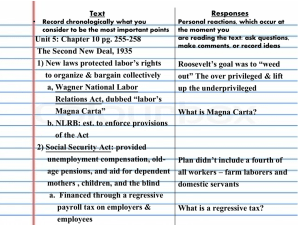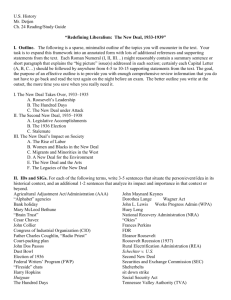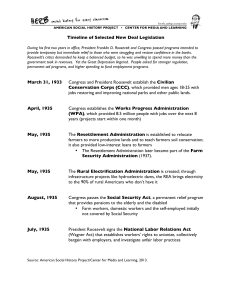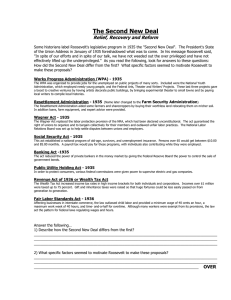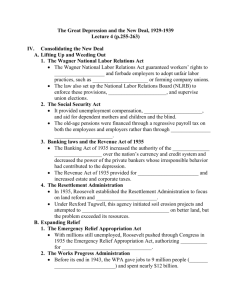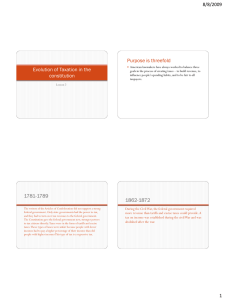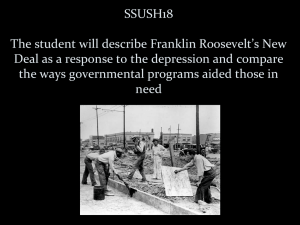Social Security Act
advertisement
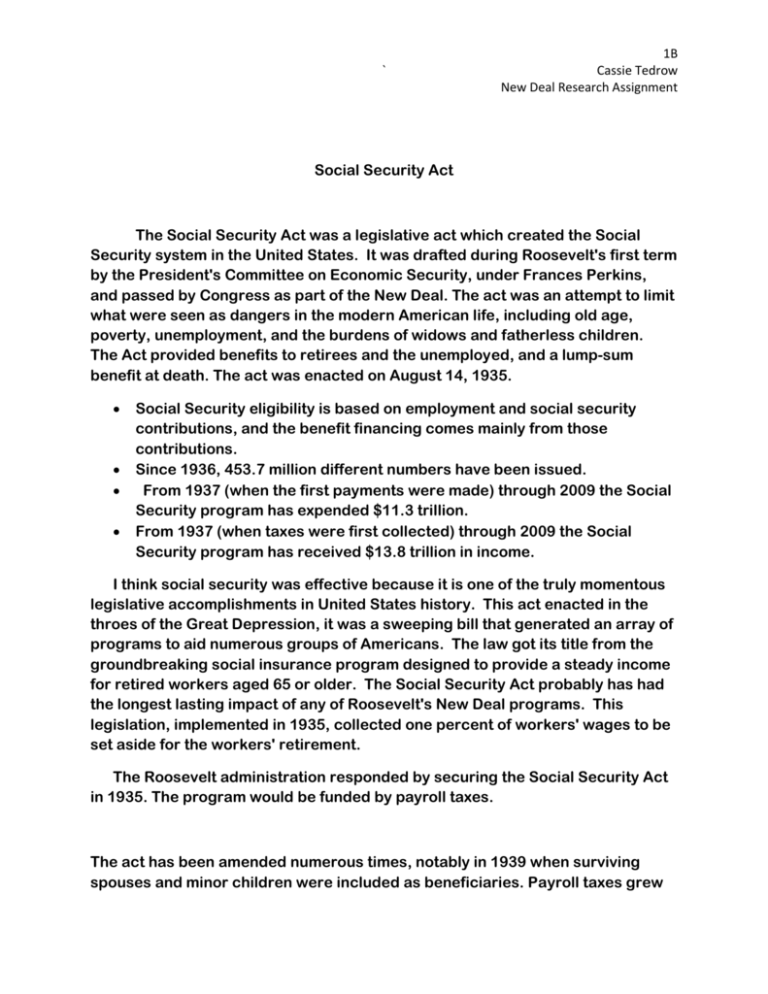
` 1B Cassie Tedrow New Deal Research Assignment Social Security Act The Social Security Act was a legislative act which created the Social Security system in the United States. It was drafted during Roosevelt's first term by the President's Committee on Economic Security, under Frances Perkins, and passed by Congress as part of the New Deal. The act was an attempt to limit what were seen as dangers in the modern American life, including old age, poverty, unemployment, and the burdens of widows and fatherless children. The Act provided benefits to retirees and the unemployed, and a lump-sum benefit at death. The act was enacted on August 14, 1935. Social Security eligibility is based on employment and social security contributions, and the benefit financing comes mainly from those contributions. Since 1936, 453.7 million different numbers have been issued. From 1937 (when the first payments were made) through 2009 the Social Security program has expended $11.3 trillion. From 1937 (when taxes were first collected) through 2009 the Social Security program has received $13.8 trillion in income. I think social security was effective because it is one of the truly momentous legislative accomplishments in United States history. This act enacted in the throes of the Great Depression, it was a sweeping bill that generated an array of programs to aid numerous groups of Americans. The law got its title from the groundbreaking social insurance program designed to provide a steady income for retired workers aged 65 or older. The Social Security Act probably has had the longest lasting impact of any of Roosevelt's New Deal programs. This legislation, implemented in 1935, collected one percent of workers' wages to be set aside for the workers' retirement. The Roosevelt administration responded by securing the Social Security Act in 1935. The program would be funded by payroll taxes. The act has been amended numerous times, notably in 1939 when surviving spouses and minor children were included as beneficiaries. Payroll taxes grew ` 1B Cassie Tedrow New Deal Research Assignment to pay for it. In the 1950s, more people were added to Social Security's beneficiary pool, and the benefit was increased, including the first cost-of-living allowance (COLA) since 1940. This was a great topic to learn about because I always wondered why they were taking social security money out of my pay check. I chose this picture because this is what your social security card looks like. I chose this picture because these are people who would sign for social security. I chose this picture because he would qualify for social security.
